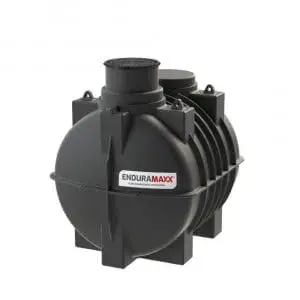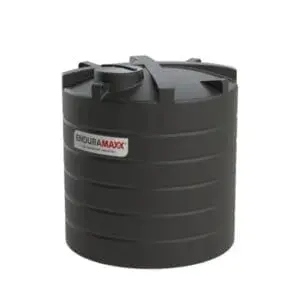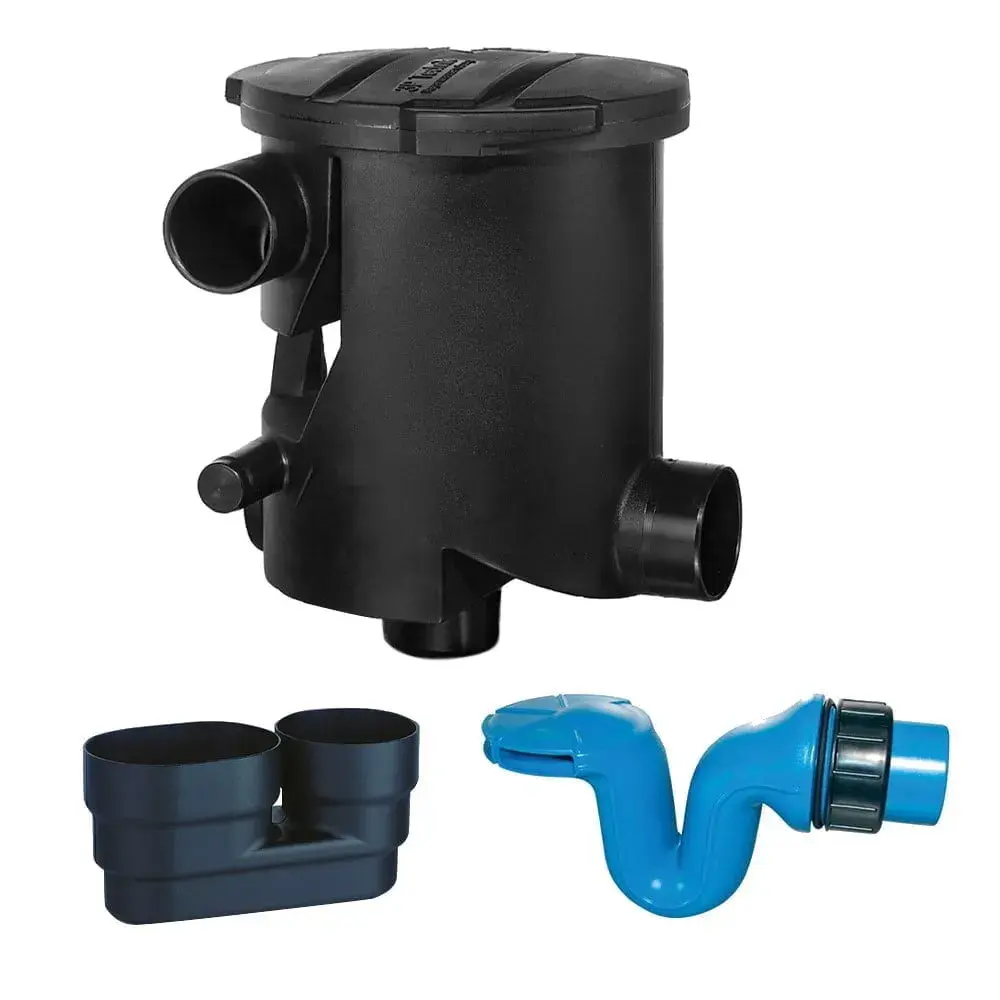
The drought of Summer 2022 caused water availability issues to take centre stage, especially among businesses in the construction, manufacturing, and agricultural sectors that depend on large volumes of process water drawn from the mains or public bodies of water.
Commercial rainwater harvesting systems are a cost-effective solution to the need for a consistent water supply, and can also reduce overheads, irrespective of whether water restrictions are in place.
The Advantages Of Rainwater Harvesting
Ideally, rainwater harvesting systems are best installed at the time a property is built. However, they can also be retrofitted onto most types of existing building, and even installed on a construction or quarrying site as part of a freestanding water management system.
Once a rainwater collection installation is in place, you can expect the following:
Lower Water Costs
In some parts of the UK, water bills have increased by more than 10% this year. Rising costs are the result of utility providers adjusting their prices for inflation, and in some cases, the cost of environmental failures is passed onto consumers.
A rainwater harvesting system offers businesses a degree of protection against these charges. By collecting rainwater and having it available to be reused, you reduce the use of mains water for commercial processes and therefore lower your water bill. Harvested rainwater has multiple uses in commercial settings, from washing machinery to toilet flushing.
A Rise In Property Value
Properties built to have a low environmental impact are highly sought after in the commercial sector due to increasingly stringent compliance requirements in many industries. Businesses are sometimes willing to pay higher lease and purchase prices for structures that come with these features ready to use. Installing a rainwater collection system on a commercial property is a way of improving the eco credentials of the building and increasing the inherent value of any property assets owned by your business.
More Efficient Stormwater Attenuation
Changing climate patterns mean that we’re more likely to be affected by extreme weather events – with winter flooding becoming a regular hazard for businesses in many parts of the UK. Stormwater attenuation helps minimise the risk of flooding for commercial sites situated close to rivers, and especially so when complemented by a rainwater harvesting system.
The system helps manage excess rainfall by diverting it into large tanks, where it’s kept until it’s safe to release it slowly back to the river or public sewer. What’s more, connecting these two systems also provides a water reserve for your business, which can be very valuable in the event of a drought or restrictions on the use of process water in your area.
Water Management Systems From Enduramaxx
Overall, rainwater harvesting is an attractive feature for anyone looking to save money and improve the sustainability profile of their business. To find out more about rainwater harvesting and storage equipment and its uses, we invite you to check our website. In the Case Studies section, you’ll find examples of how our products have been used to install successful rainwater harvesting systems in the UK.
Image source: Unsplash
Posts By Topics
- Blog (303)
- Chemical Storage Tanks (118)
- Chemical Dosing Tanks (114)
- Chemical Tanks (114)
- Water Tanks (58)
- Rainwater Harvesting Tanks (43)
- Vertical Rainwater Tanks (31)
- Vertical Storage Tanks (31)
- Cone Bottom Tanks (19)
- Conical Cone Tanks (18)
- Rainwater Harvesting (17)
- Water Bowsers (15)
- Horizontal Tanks (14)
- Potable Water Tanks (13)
- Farming (9)
- Case Studies (8)
- Industrial Storage Tanks (7)
- Liquid Fertilser Storage Tanks (6)
- WRAS Approved Potable Tanks (6)
- Wine and Beer Production (6)
- Horizontal Transport Tanks (5)
- Microbrewery (5)
- Rainwater (5)
- Category 5 Break Tanks (4)
- Cider Production (4)
- Mixer Tanks (4)
- Molasses Tanks (4)
- Polyethylene tanks (4)
- Rainwater Filter Kits (4)
- SPECIALIST & BESPOKE TANKS (4)
- Bunded Tanks (3)
- Slimline Tanks (3)
- WRAS Approved (3)
- Clarification Tanks (2)
- Crosslinked Polymer Tanks (XLPE) (2)
- Fertiliser Tanks (2)
- Sump Tanks (2)
- Tank Installation (2)
- Water Butt (2)
- underground water tanks (2)
- ACCESSORIES & FITTINGS (1)
- ATV & UTV SPRAYING UNITS (1)
- Above Ground Effluent Tanks (1)
- Bespoke Tank Frames (1)
- Category 5 Turret (1)
- Caustic Soda Tanks (1)
- Closed Top Bunded Tanks (1)
- Craft beer (1)
- Effluent Tanks (1)
- Enduramaxx (1)
- Ferric Chloride Tanks (1)
- Fire Safety Regulations (1)
- Fire Sprinkler Water Storage Tanks (1)
- Industrial Water Tank (1)
- Open Top Bunded Tanks (1)
- Open Top Cone Tanks (1)
- Open Top Vertical Tanks (1)
- Polyethylene Potable Water Tanks (1)
- Polyvinylidene Fluoride (PVDF) Tanks (1)
- Polyvinylidene Fluoride Tanks (PVDF) (1)
- Pressure Washers (1)
- Pro Series Spot Sprayers (1)
- RWH (1)
- Sodium Hydroxide Storage Tanks (1)
- Sprayer Fill-up Tanks (1)
- Uncategorised (1)
- liquid fertiliser tank (1)
Sign up to the newsletter
Amber
Related Posts
Calculating Your Roof Surface Area for Rain Harvesting: How Much Can I Save?
Calculating Your Roof Surface Area for Rain Harvesting – Your roof surface area is the size of your...
Calculating Your Roof Surface Area for Rainwater Harvesting
Calculating Your Roof Surface Area for Rainwater Harvesting, your roof collection area, when you...
Calculating the Amount of Rainwater You Can Collect From Your Roof
Rainwater collected from the roof of your house, agricultural building, office block, restaurant,...
Related Products
From £1,080.00 inc. VAT
£900.00 exc. VAT
From £1,344.00 inc. VAT
£1,120.00 exc. VAT
From £768.00 inc. VAT
£640.00 exc. VAT
£480.00 inc. VAT
£400.00 exc. VAT






